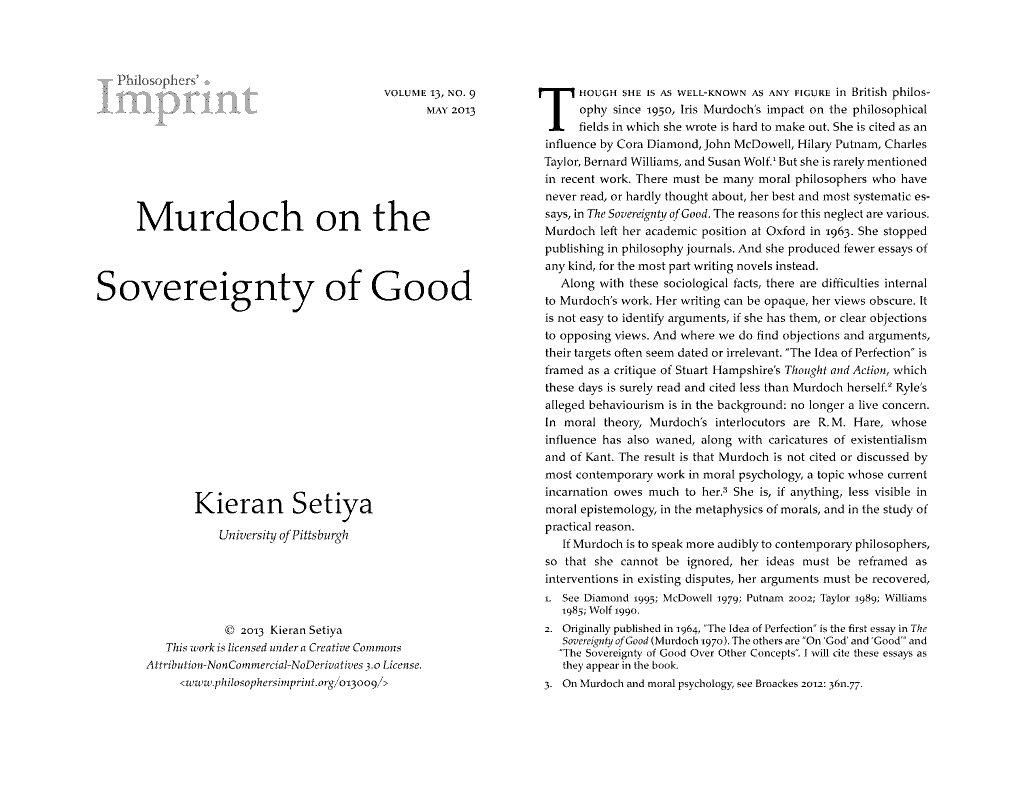Murdoch on the Sovereignty of Good
Skip other details (including permanent urls, DOI, citation information): This work is licensed under a Creative Commons Attribution-NonCommercial-NoDerivatives 3.0 License. Please contact [email protected] to use this work in a way not covered by the license.
For more information, read Michigan Publishing's access and usage policy.
Abstract
Considering her fame, Iris Murdoch's presence in contemporary philosophy is surprisingly limited. She is rarely cited and less often discussed. The reasons for this neglect are various, but they include the difficulty of finding definite arguments in her work. This essay attempts to recover The Sovereignty of Good as an intervention in existing and perennial disputes. Murdoch defends a radical internalism about moral reasons that avoids the problem of ethical rationalism and the question "Why be moral?" She derives this conception from a general theory of concepts that has Platonic roots, a theory on which the conditions of concept-possession are tied to the norms of practical and theoretical reason. As well as saving morality from the sceptic, this theory supports an ontological proof of the reality of the Good.



